Rob Epstein
出生 : 1955-04-06, New Jersey, United States
略歴
Rob Epstein, also credited as Robert P. Epstein is a gay non-fiction filmmaker, director, producer, writer and editor. Epstein has won two Academy Awards for Best Documentary Feature for the films The Times of Harvey Milk and Common Threads: Stories from the Quilt. He has also won four national Emmy Awards, three Peabody Awards, two DuPont Columbia Journalism awards, a Guggenheim Fellowship and numerous other awards for his documentary films.

Producer
This riotous concert film documents New York theater legend Taylor Mac's joyous, challenging, and ostentatiously queer 24-hour musical performance. Featuring virtuoso musicians, innovative costumes, and the American myth as told by sailor's ditties, disco, and sugary pop alike, Mac's cathartic celebration is not to be missed.

Director
This riotous concert film documents New York theater legend Taylor Mac's joyous, challenging, and ostentatiously queer 24-hour musical performance. Featuring virtuoso musicians, innovative costumes, and the American myth as told by sailor's ditties, disco, and sugary pop alike, Mac's cathartic celebration is not to be missed.

With vintage footage, interviews, and Marc Huestis' own energy and humor at the center, Impresario is an homage to a San Francisco icon and one of the founders of Frameline.

Director
With one of the most memorably stunning voices that has ever hit the airwaves, Linda Ronstadt burst onto the 1960s folk rock music scene in her early twenties.

Director
Fifty years after the Stonewall uprising, Oscar-winning filmmakers Rob Epstein and Jeffrey Friedman travel to three diverse communities – Salt Lake City, San Francisco, and Tuscaloosa, Alabama – for an unflinching look at LGBTQ Pride, from the perspective of a younger generation for whom it still has personal urgency.

Editor
Filmed and edited in intimate vérité style, this movie follows visionary medical practitioners who are working on the cutting edge of life and death and are dedicated to changing our thinking about both.

Director of Photography
Filmed and edited in intimate vérité style, this movie follows visionary medical practitioners who are working on the cutting edge of life and death and are dedicated to changing our thinking about both.

Producer
Filmed and edited in intimate vérité style, this movie follows visionary medical practitioners who are working on the cutting edge of life and death and are dedicated to changing our thinking about both.

Director
Filmed and edited in intimate vérité style, this movie follows visionary medical practitioners who are working on the cutting edge of life and death and are dedicated to changing our thinking about both.

Himself
What do filmmakers as disparate as Kevin Smith, Ed Burns, Rob Epstein, and Barbara Hammer have in common? A secret weapon known as Bob Hawk. As a veteran of the American independent film scene since its inception, the cinephile and consultant has been a regular, cherished presence at film festivals and markets for over three decades. Hawk saw promise in scrappy, independently produced films like Clerks and The Brothers McMullen when no one else even knew to look, and he brought these films to the attention of the Sundance Film Festival, thereby launching multiple careers in the process. An unsung champion of new voices, he has discovered innovative work, nurtured new talents, and brokered relationships with film festivals and critics alike, while staying out of the spotlight—until now. At 75, Bob Hawk looks back on a still-vibrant life in independent film, exploring how the rebellious gay son of a preacher found his calling as a behind-the-scenes film impresario.

Producer
The story of the gold-plated statuette that became the film industry's most coveted prize, AND THE OSCAR GOES TO... traces the history of the Academy itself, which began in 1927 when Louis B. Mayer, then head of MGM, led other prominent members of the industry in forming this professional honorary organization. Two years later the Academy began bestowing awards, which were nicknamed "Oscar," and quickly came to represent the pinnacle of cinematic achievement.

Writer
The story of the gold-plated statuette that became the film industry's most coveted prize, AND THE OSCAR GOES TO... traces the history of the Academy itself, which began in 1927 when Louis B. Mayer, then head of MGM, led other prominent members of the industry in forming this professional honorary organization. Two years later the Academy began bestowing awards, which were nicknamed "Oscar," and quickly came to represent the pinnacle of cinematic achievement.

Director
The story of the gold-plated statuette that became the film industry's most coveted prize, AND THE OSCAR GOES TO... traces the history of the Academy itself, which began in 1927 when Louis B. Mayer, then head of MGM, led other prominent members of the industry in forming this professional honorary organization. Two years later the Academy began bestowing awards, which were nicknamed "Oscar," and quickly came to represent the pinnacle of cinematic achievement.
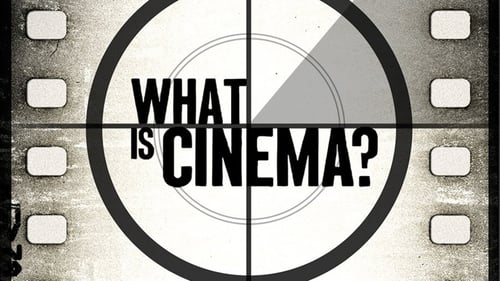
Self
Using the words and ideas of great filmmakers, from archival interviews with Alfred Hitchcock and Robert Bresson to new interviews with Mike Leigh, David Lynch, and Jonas Mekas, Oscar-winning filmmaker Chuck Workman shows what these filmmakers and others do that can't be expressed in words - but only in cinema.
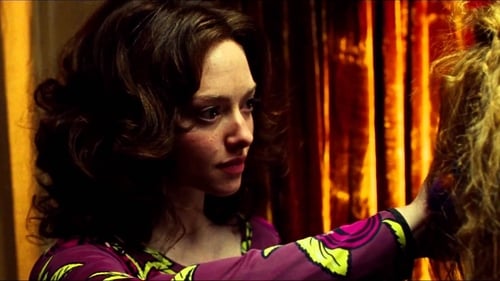
Director
Story of Linda Lovelace, who is used and abused by the porn industry at the behest of her coercive husband, before taking control of her life.
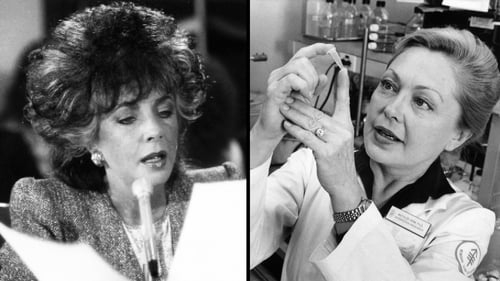
Director
When AIDS struck in the early 1980s, a scientist and a movie star did not have to respond - but they did. Dr. Mathilde Krim and Elizabeth Taylor joined forces to create amfAR, the Foundation for AIDS Research. The fight against HIV has never been the same. The Perfect Host reveals how two powerful and very different women came together, and what their combined efforts achieved. With passion and wit, Taylor wielded celebrity as a weapon against government indifference while Krim's commitment to science ensured support for the most promising research areas. Today, the only man cured of AIDS can thank research championed by Mathilde Krim. Visually dazzling and emotionally compelling, this story offers a surprising perspective on the still ongoing fight against AIDS.

Himself
In the aftermath of Stonewall, a newly politicized Vito Russo found his voice as a gay activist and critic of LGBTQ+ representation in the media. He went on to write "The Celluloid Closet", the first book to critique Hollywood's portrayals of gays on screen. During the AIDS crisis in the 1980s, Vito became a passionate advocate for justice via the newly formed ACT UP, before his death in 1990.

Producer
It's San Francisco in 1957, and an American masterpiece is put on trial. Howl, the film, recounts this dark moment using three interwoven threads: the tumultuous life events that led a young Allen Ginsberg to find his true voice as an artist, society's reaction (the obscenity trial), and mind-expanding animation that echoes the startling originality of the poem itself. All three coalesce in a genre-bending hybrid that brilliantly captures a pivotal moment-the birth of a counterculture.

Writer
It's San Francisco in 1957, and an American masterpiece is put on trial. Howl, the film, recounts this dark moment using three interwoven threads: the tumultuous life events that led a young Allen Ginsberg to find his true voice as an artist, society's reaction (the obscenity trial), and mind-expanding animation that echoes the startling originality of the poem itself. All three coalesce in a genre-bending hybrid that brilliantly captures a pivotal moment-the birth of a counterculture.

Director
It's San Francisco in 1957, and an American masterpiece is put on trial. Howl, the film, recounts this dark moment using three interwoven threads: the tumultuous life events that led a young Allen Ginsberg to find his true voice as an artist, society's reaction (the obscenity trial), and mind-expanding animation that echoes the startling originality of the poem itself. All three coalesce in a genre-bending hybrid that brilliantly captures a pivotal moment-the birth of a counterculture.

Director
A collection of shorts made by various directors in response to 9/11.
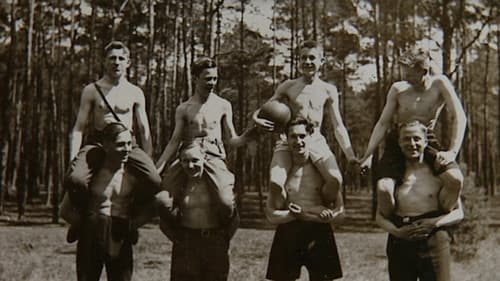
Producer
During the Nazi regime, there was widespread persecution of homosexual men, which started in 1871 with the Paragraph 175 of the German Penal Code. Thousands were murdered in concentration camps. This powerful and disturbing documentary, narrated by Rupert Everett, presents for the first time the largely untold testimonies of some of those who survived.

Director
During the Nazi regime, there was widespread persecution of homosexual men, which started in 1871 with the Paragraph 175 of the German Penal Code. Thousands were murdered in concentration camps. This powerful and disturbing documentary, narrated by Rupert Everett, presents for the first time the largely untold testimonies of some of those who survived.
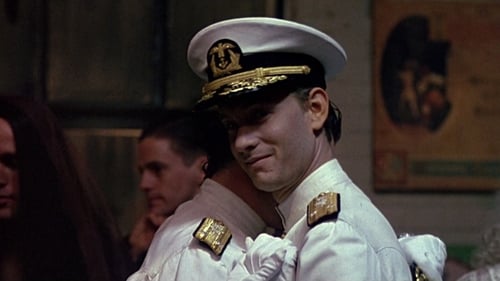
Producer
This documentary highlights the historical contexts that gay, lesbian, bisexual and transgender individuals have occupied in cinema history, and shows the evolution of the entertainment industry's role in shaping perceptions of LGBT figures. The issues addressed include secrecy – which initially defined homosexuality – as well as the demonization of the homosexual community with the advent of AIDS, and finally the shift toward acceptance and positivity in the modern era.

Director
This documentary highlights the historical contexts that gay, lesbian, bisexual and transgender individuals have occupied in cinema history, and shows the evolution of the entertainment industry's role in shaping perceptions of LGBT figures. The issues addressed include secrecy – which initially defined homosexuality – as well as the demonization of the homosexual community with the advent of AIDS, and finally the shift toward acceptance and positivity in the modern era.

Producer
Accomplished documentarians Rob Epstein and Jeff Friedman take a trip across the American South and Southwest, asking people about their hopes and fears.

Director
Accomplished documentarians Rob Epstein and Jeff Friedman take a trip across the American South and Southwest, asking people about their hopes and fears.
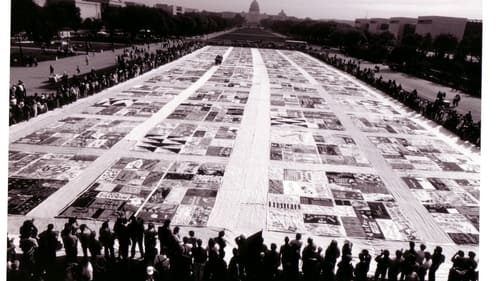
Producer
On the eve of 1987's Second National March on Washington for Lesbian and Gay Rights, surviving families and friends of people who have died of AIDS prepare panels to be added to a large-scale memorial quilt project. Drawing from the sea of names memorialized, director Robert Epstein focuses on the lives of six people. Alongside the intimate profiles offered, through news footage and interviews, Epstein puts the AIDS crisis in the larger context of social and government response to the disease.

Editor
On the eve of 1987's Second National March on Washington for Lesbian and Gay Rights, surviving families and friends of people who have died of AIDS prepare panels to be added to a large-scale memorial quilt project. Drawing from the sea of names memorialized, director Robert Epstein focuses on the lives of six people. Alongside the intimate profiles offered, through news footage and interviews, Epstein puts the AIDS crisis in the larger context of social and government response to the disease.

Writer
On the eve of 1987's Second National March on Washington for Lesbian and Gay Rights, surviving families and friends of people who have died of AIDS prepare panels to be added to a large-scale memorial quilt project. Drawing from the sea of names memorialized, director Robert Epstein focuses on the lives of six people. Alongside the intimate profiles offered, through news footage and interviews, Epstein puts the AIDS crisis in the larger context of social and government response to the disease.

Director
On the eve of 1987's Second National March on Washington for Lesbian and Gay Rights, surviving families and friends of people who have died of AIDS prepare panels to be added to a large-scale memorial quilt project. Drawing from the sea of names memorialized, director Robert Epstein focuses on the lives of six people. Alongside the intimate profiles offered, through news footage and interviews, Epstein puts the AIDS crisis in the larger context of social and government response to the disease.

Producer
A recording of a play about the intangible impacts AIDS has on a community. This is a moving, beautifully photographed combination of theater and documentary that captures the incredible excitement of live theater and intensifies the power of the play's message.

Director
A recording of a play about the intangible impacts AIDS has on a community. This is a moving, beautifully photographed combination of theater and documentary that captures the incredible excitement of live theater and intensifies the power of the play's message.
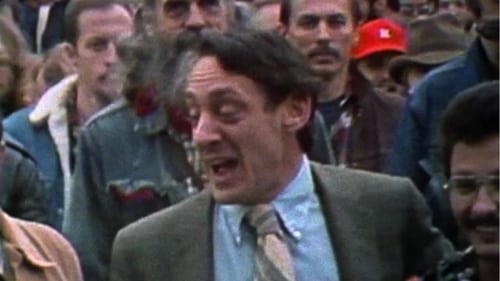
Writer
自らゲイと公言し、社会的弱者の権利獲得を訴えたサンフランシスコの市政執行委員。が、その活躍を目障りに思った男に殺されてしまう。事件の顛末を、彼の活動と共に描いた傑作ドキュメンタリー。

Editor
自らゲイと公言し、社会的弱者の権利獲得を訴えたサンフランシスコの市政執行委員。が、その活躍を目障りに思った男に殺されてしまう。事件の顛末を、彼の活動と共に描いた傑作ドキュメンタリー。

Producer
自らゲイと公言し、社会的弱者の権利獲得を訴えたサンフランシスコの市政執行委員。が、その活躍を目障りに思った男に殺されてしまう。事件の顛末を、彼の活動と共に描いた傑作ドキュメンタリー。

Director
自らゲイと公言し、社会的弱者の権利獲得を訴えたサンフランシスコの市政執行委員。が、その活躍を目障りに思った男に殺されてしまう。事件の顛末を、彼の活動と共に描いた傑作ドキュメンタリー。

Director
More than two dozen men and women of various backgrounds, ages, and races talk to the camera about being gay or lesbian. Their stories are arranged in loose chronology: early years, fitting in (which for some meant marriage), coming out, establishing adult identities, and reflecting on how things have changed and how things should be.














